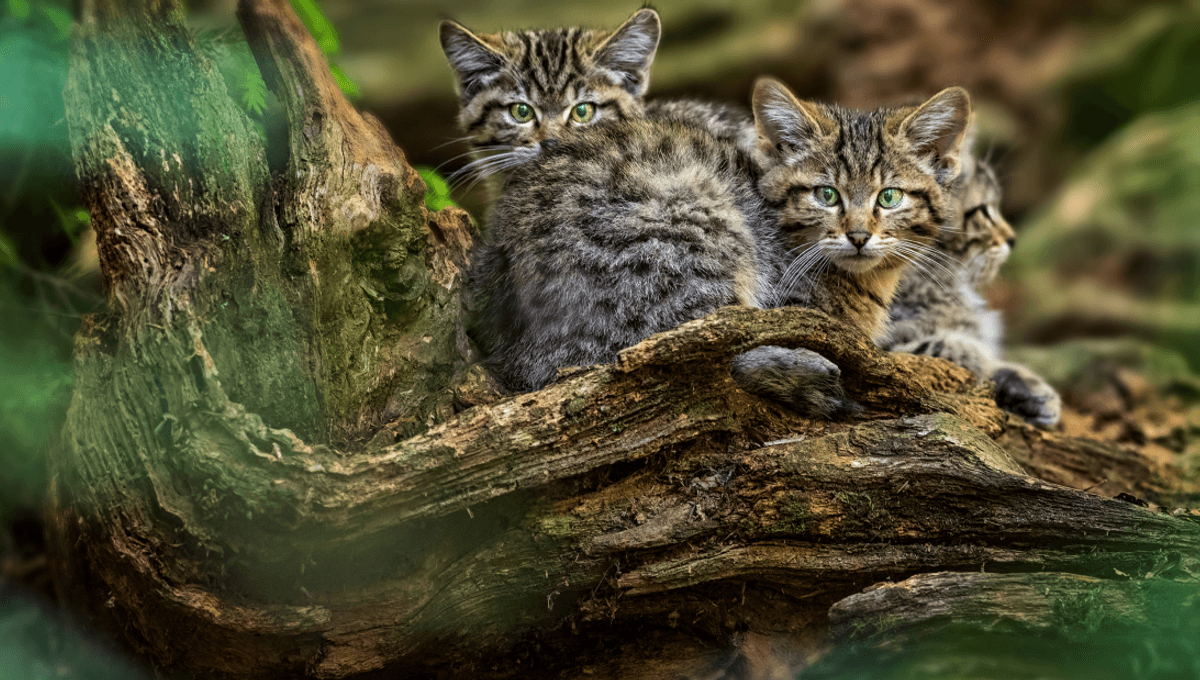Domestic Cats Keeping Making Hybrids. That’s A Problem, And Yes – That Includes Some Pets

Domestic Cats Can Be A Nightmare For Conservation For A Weird Reason: They Keep Making Hybrids
The European wildcat Felis silvestris can breed with domestic cats (F. catus) to produce fertile offspring. Not only does this mean that pets on the loose in areas that overlap with wildcat territory could get up to hijinks, but it also means their subsequent hybrid offspring can also go on to do the same.
The rest of this article is behind a paywall. Please sign in or subscribe to access the full content. Why is this a problem? Wildcats in Scotland are under threat from “hybrid swarms” as domestic cats started interbreeding with them 60 years ago. This kind of genetic swamping is a relatively new problem, as a 2023 study revealed that domestic cats have been living alongside each other for 2,000 years, but they only started getting it on in the last half-century or so. A combination of persecution and habitat loss has pushed European wildcats to the brink in the UK. They were scampering around England and Wales until the late 19th century, but now you’ll only find them in the Scottish Highlands and even there, the population is fragmented. It’s thought there are between 30 to 430 individuals left in the wild, but in Scotland the hybridization rates are far higher than elsewhere in Europe. Since the UK lost the lynx, the European wildcat became its last wild felid species and most endangered mammalian carnivore. Wildcats typically prefer to keep to themselves, but as people encroach on their habitat, so too can their pets. Image credit: Ian W Douglas / Shutterstock.com That means any opportunity for a wildcat to meet up with another wildcat and make some lovely wildcat kittens is one that can’t be wasted, but then – who’s this? Mr Crumbles is on the prowl, and no - he's not looking for biscuits. This is the story that’s been playing out increasingly often over the last 60 years, leading to genetic swamping as “hybrid swarms” effectively muddy the waters for the last surviving wildcats. There aren’t thought to be any Scottish wildcats, wild or in captivity, that are free from some degree of domestic cat ancestry, and as domestic cats' genetic influence over the wildcat genome creeps in, eventually it could make them extinct. The hybrid swarms are primarily attributed to feral and stray cats, but farm and pet cats can also contribute to the problem when they're allowed to roam freely outside. For this reason, NatureScot supports legislation to ensure pets are microchipped and neutered/spayed. The issue of hybridization further complicates conservation as it raises questions regarding species identity, and whether the protections afforded to a species should carry across to hybridized offspring. Beyond genetic swamping, we also run the risk of fewer kittens being born overall as successive generations of hybrids can reduce an individual’s likelihood of being reproductively viable. We see this in the instance of wild cat hybrids between servals and domestic cats, among which the WildCat Ridge Sanctuary says 4th to 5th generation male hybrids are often sterile. Where the hell do you think you're going, Mr Crumbles. Image credit: Altsva / Shutterstock.com Beyond creating hybrids, domestic cats have a bad habit of hunting small, native, and sometimes endangered wildlife – they don’t know any different – and without the pressure of needing to feed themselves, they can hunt for sport. Furthermore, a study published earlier this year found that pet cats outdoors are indirectly exposing birds to flea treatments as they use their fur for their nests. “It is extremely concerning to see the alarming levels of toxic pesticides in bird nests from veterinary drugs,” commented Sue Morgan, Chief Executive of SongBird Survival, in a statement. “Pet owners will be upset to hear that in trying to do the right thing to support their pets with fleas and ticks, they could be harming our ecosystem, resulting in dead newborn chicks and unhatched eggs.” Interactions with wild animals can also be detrimental to domestic cats, as seen in Washington where overlapping territory with raccoons, red foxes, and opossums puts them at greater risk of exposure to things like rabies. A complex situation then, and as Morgan put it, “As pet owners, we need to have confidence that we are keeping our pets well, without devastating impacts on our wildlife.” If you'll excuse me, I'm off to fetch Mr Crumbles. 



